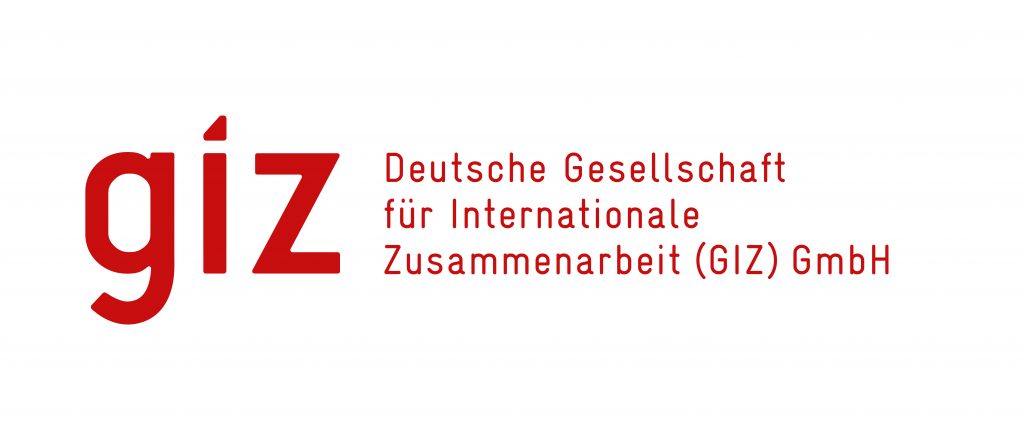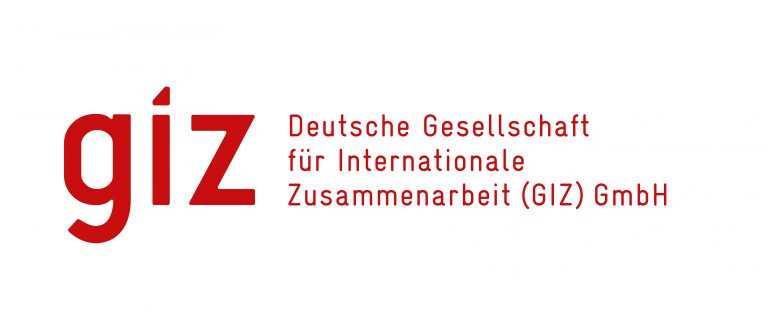


Shaping the Gig
Economy
Understanding the regulatory potentials
and risks for digital labour platforms.
Start date: Individually
Total time commitment: 2-8h
(adjustable to your needs)
Location: online
Costs: free of charge

About the programme
Are you prepared to delve into the intricate world of the gig economy, where challenges and opportunities intertwine? Then access our free online course and learn to unlock the potential of the gig economy!
The gig economy, defined by its short-term “gigs” and digitally mediated work arrangements, offers a unique blend of flexibility, diversity, and freedom. It’s no wonder that over 40 million people in low- and middle-income countries are already participating in this evolving landscape, and the numbers continue to rise. Digital labour platforms have revolutionized employment, but they also pose challenges, such as trade-offs between flexibility and job security, as well as concerns about working conditions and fairness. Addressing these challenges requires smart and informed policy responses.
Presenting the GIZ Online Course: Shaping the Gig Economy
Our course is meticulously designed for policy makers, trade union representatives, civil society leaders, business professionals, academics, and experts from various disciplines. It offers a comprehensive understanding of the dynamics, possibilities, and challenges associated with the emergence of digital labour platforms, with a specific focus on low- and middle-income countries.
Developed by the GIZ Gig Economy Initiative, dedicated to promoting fair work in the digital labour sphere and implemented on behalf of the German Ministry for Economic Cooperation and Development (BMZ), this course leverages global expertise. With a wealth of experience in capacity development across low- and middle-income countries, we provide an in-depth exploration of the gig economy in the global South.
In collaboration with the Smart Africa Digital Academy, we’ve assembled an advisory committee of distinguished experts and professionals who are deeply engaged in this field. This course isn’t just an educational opportunity; it’s a chance to connect with a community of thought leaders.
Prepare to embark on an enlightening journey into the gig economy. Join us and gain a deep understanding of the future of work. Register today to be part of this exciting adventure.
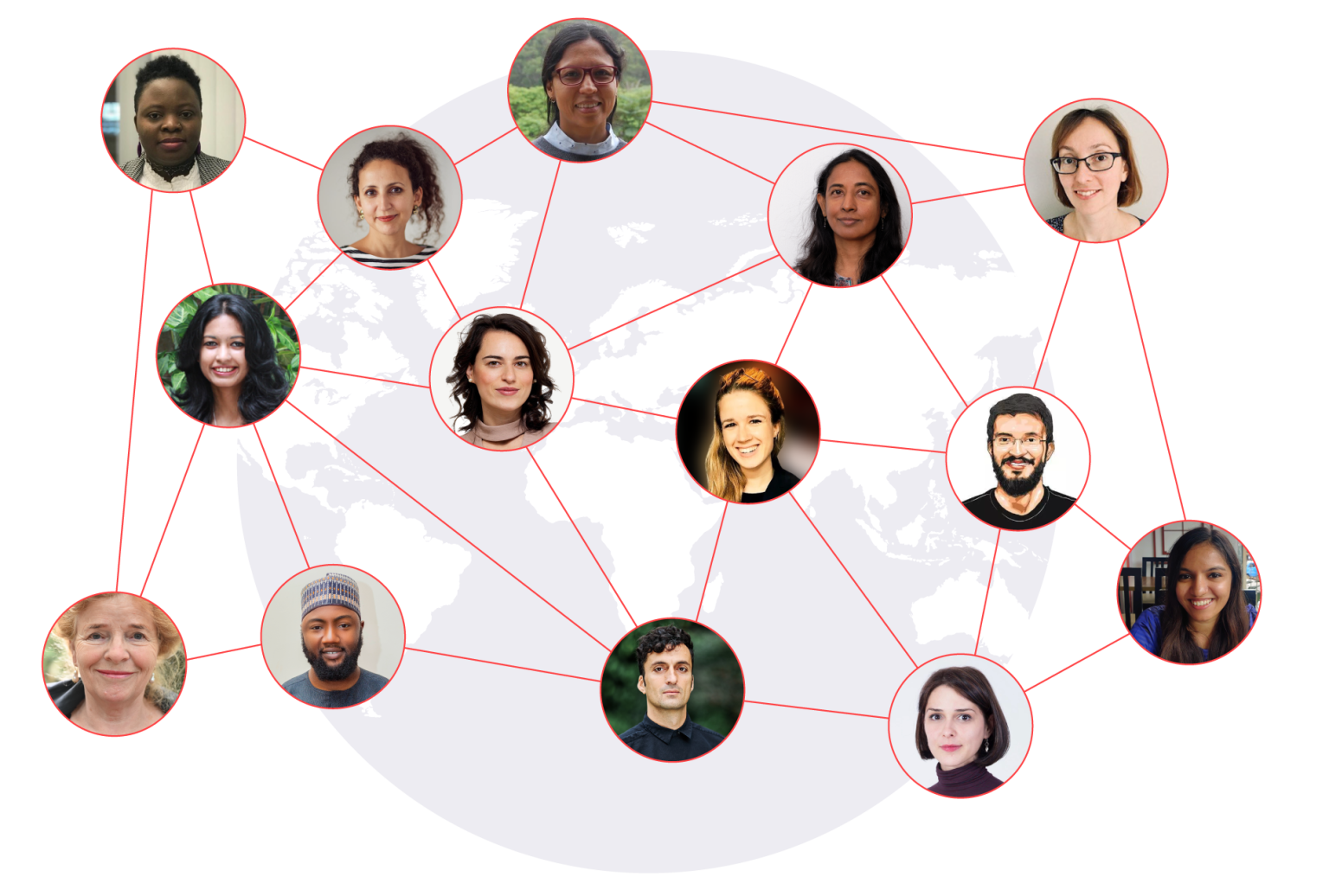
Upon completion of this online course, you will gain an
extensive toolkit, enabling you to:
- Craft Smart and Agile Policies for the Platform Economy: You will acquire the expertise to develop forward-thinking and adaptable policy responses tailored to the unique challenges of the platform economy.
- Conceptual Understanding and In-Depth Knowledge: You will develop a profound understanding of best practices that allow you to harness the full potential of the gig economy, maximizing its benefits for your country or business.
- Robust Framework for Critical Examination: Armed with a comprehensive framework, you will be well-equipped to critically evaluate how your country or organization can derive significant advantages from effective regulation within the gig economy.
- Access to GIZ’s Exclusive Ecosystem: You will become part of GIZ’s exclusive network of stakeholders and experts, opening doors to valuable connections and resources that can drive your initiatives to new heights.
- Guidance from Pioneering Experts: Throughout the course, you will receive invaluable guidance from leading experts in the field, ensuring that you are on the cutting edge of knowledge and innovation in the world of digital labour platforms.
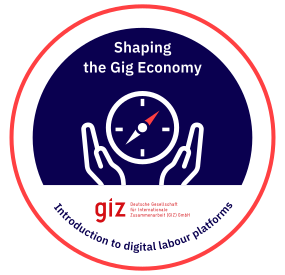
Programme Curriculum
In module 1, you will begin the journey into the world of digital labour platforms. Gain a compre-hensive introduction to gig platforms, exploring the driving forces behind their rise and the various types that exist. Delve into essential platform concepts, business models, and the significant benefits and risks associated with digital labour platforms.
MODULE 2
Agile Regulation of the
Gig Economy
In Module 2, we’ll delve into the regulatory landscape of digital labour platforms. Under-stand the reasons behind the growing interest of regulators worldwide in these platforms. Dive deep into current policy challenges and explore prospective solutions to bridge regula-tory gaps effectively.
MODULE 3
What’s different About
Platform Work?
Module 3 focuses on the evolving landscape of work and the transforming relationships between employers and employees. Discover the defining characteristics of alternative work models and explore the legal status of platform workers in this changing landscape.
MODULE 4
Fair and Decent Work
for Gig Workers
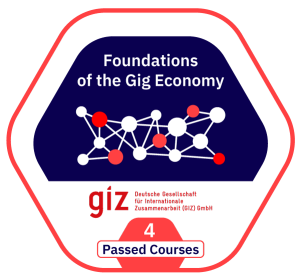
MODULE 5
Data, Algorithms,
and Gig Work
Module 5 delves into the intriguing intersection of data, algorithms, and gig work. Explore how data contributes to the value of platforms and understand the contentious issues surrounding data protection, portability, and ownership. Un-cover the impact of data and algorithms on wor-king conditions and the collective organization, bargaining, and appeal procedures of workers.
MODULE 6
Competition in the Age
of Digital Platforms
In Module 6, we turn our attention to the realm of competition law and its role in regulating digital labour platforms. Explore the tools and limitations of competition law as it relates to safeguarding and enhancing the working condi-tions of gig workers.
MODULE 7
Taxation of Platforms
and Workers
Module 7 offers an insightful overview of the challenges posed by the taxation of digital plat-forms and their workers. Examine potential so-lutions to these challenges and understand why the existing tax framework may be outdated in the context of digital platforms’ emergence.
MODULE 8
Women in the
Gig Economy
Module 8 spotlights the unique position of women in the digital labour platform landscape. Explore the specific needs, challenges, and opportunities for women in this domain. Inves-tigate the barriers they encounter in accessing the gig economy and the promising potential it holds for women worldwide.
Meet the advisory committee
The online course is developed by GIZ in cooperation with the Smart Africa Digital Alliance and our advisory committee,
which brings together renowned experts in the gig economy field:

Anna Banczyk
Deputy Head of Unit “Future of Work, Youth Employment” in the European Commission’s DG for Employment, Social Affairs and Inclusion

Tania Begazo
Senior Economist at the World Bank’s Digital Development Global Practice

Mark Graham
Professor of Internet Geography at the Oxford Internet Institute Director of the Fairwork Project

Paulien Osse
Director at the WageIndicator
Foundation

Uma Rani
Senior Economist at the
International Labour Organisation

Jasmin Gegenwart
Policy Officer, Seconded National Expert to European Commission

Dr. Funda Ustek Spilda
Post-doctoral Researcher and Project Manager, Fairwork, Oxford Internet Institute, University of Oxford
